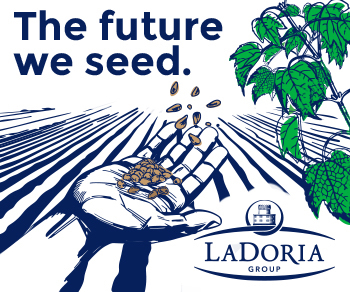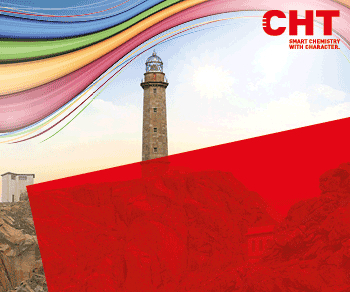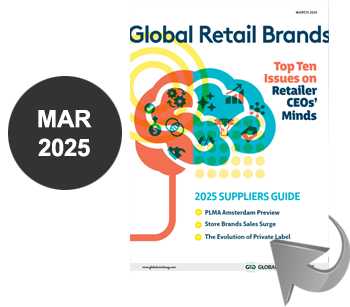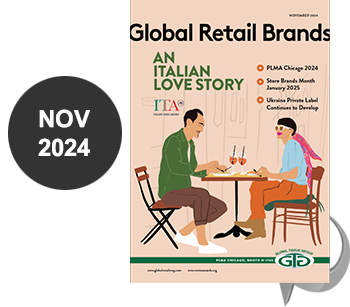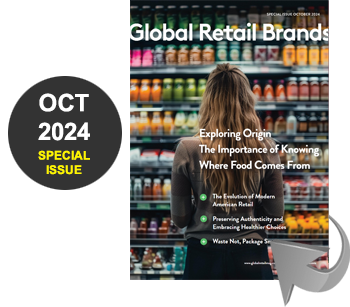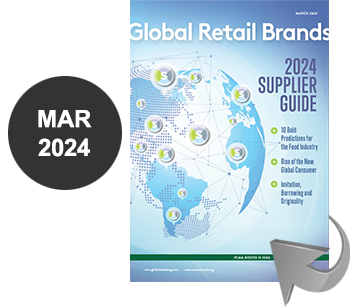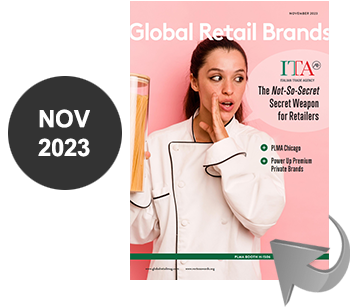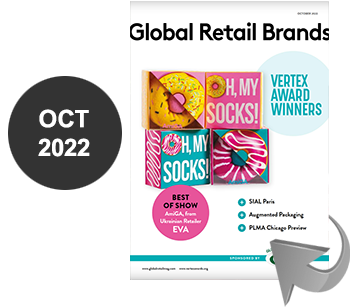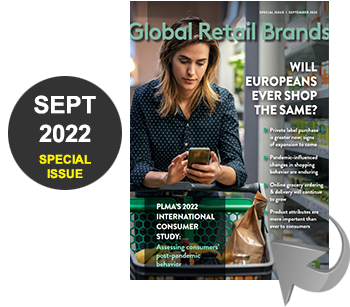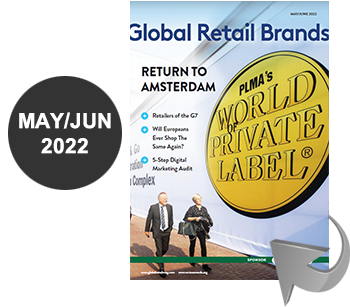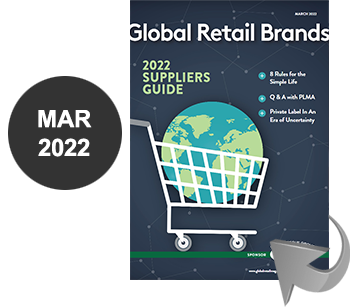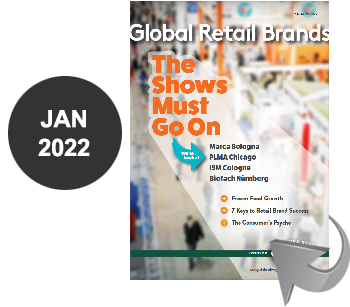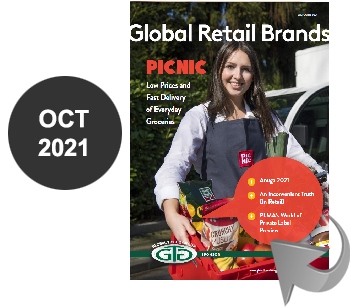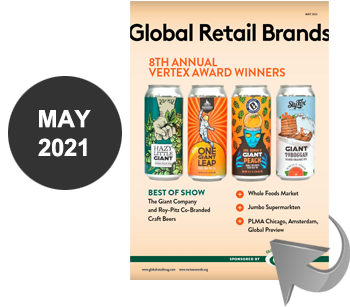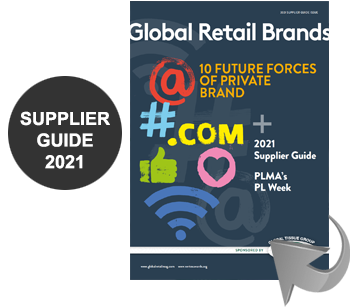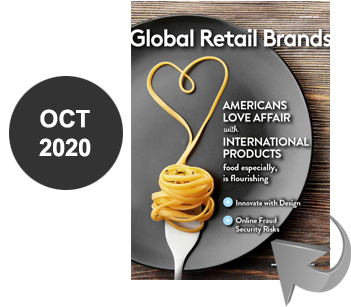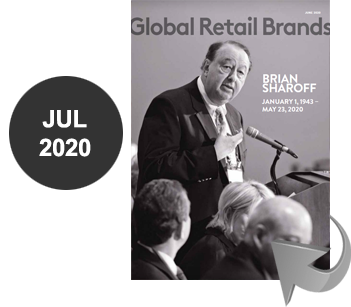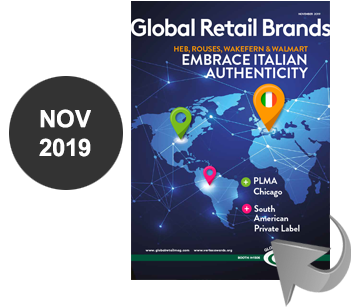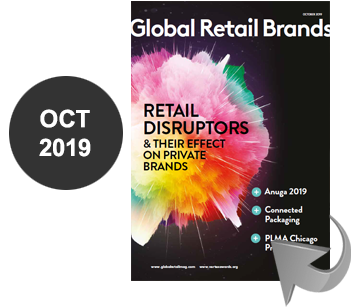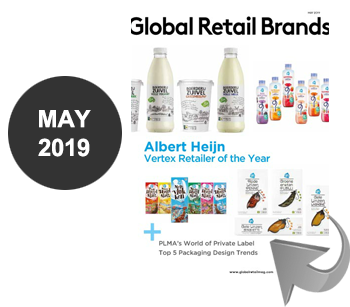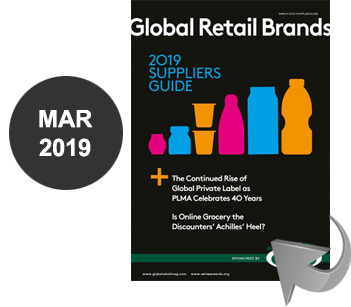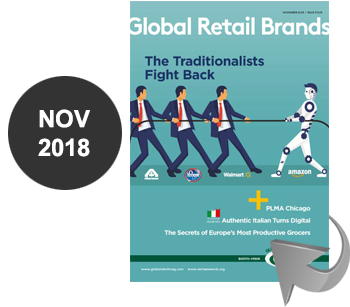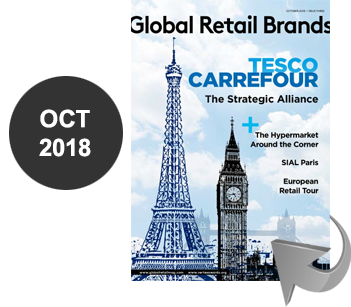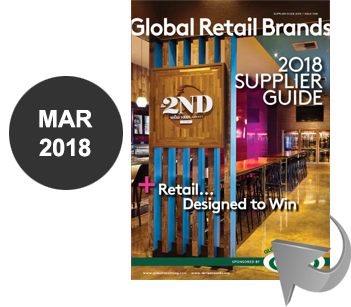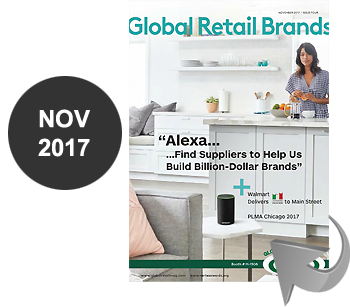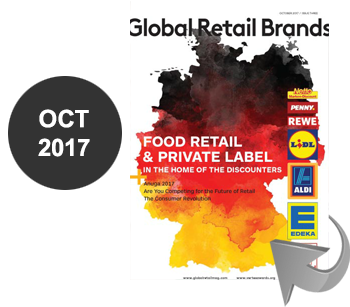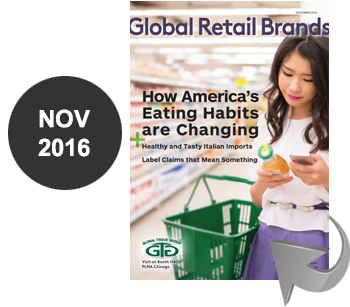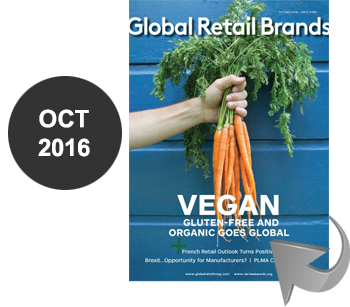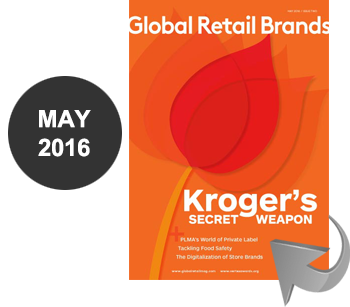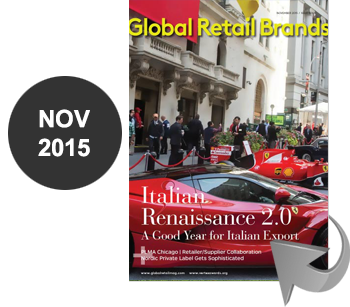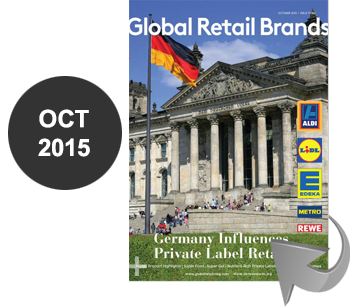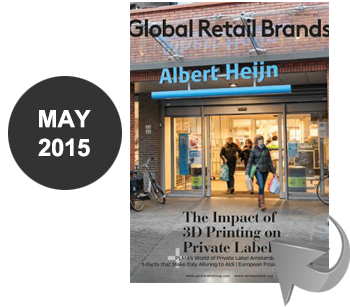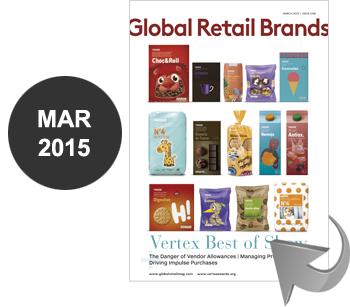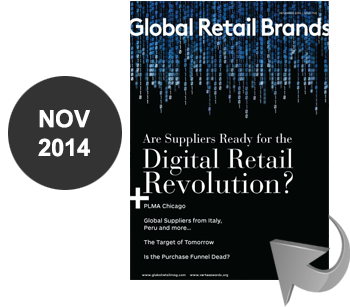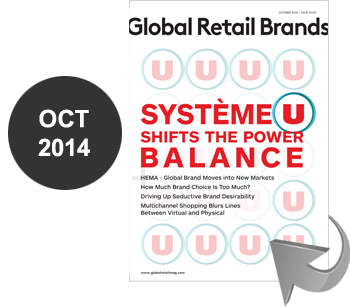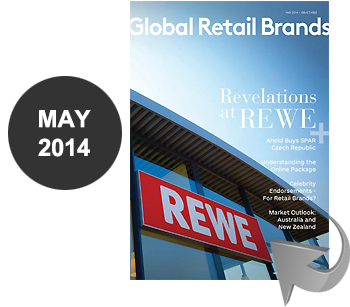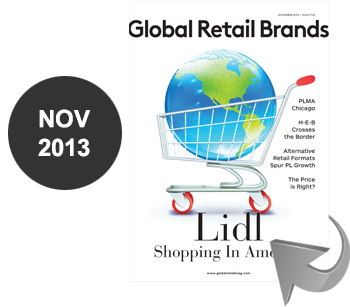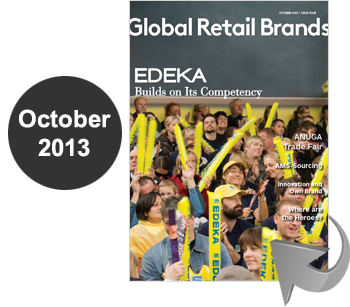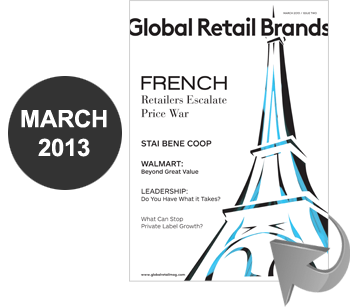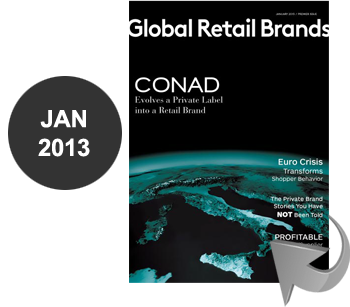Posted on 07 April 2015

By Vasco Brinca, senior Vice President, Emealae, DaymonWorldwide
Retailers around the globe today have more power in the value chain than ever before as many have become actual agents for change in the lives of their consumers. From a greater focus on health and wellness to introducing opportunities to access ethnic-inspired flavors and products, retailers often hold the key to a new world of better life experiences. Continue Reading
Posted on 07 April 2015
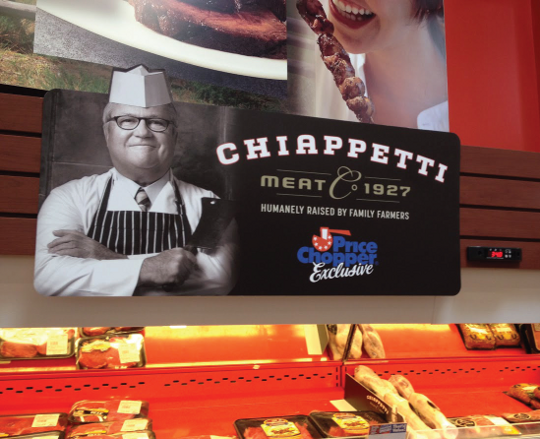
By / Perry Seelert
Does the Story of Who owns and Creates the Brand really matter?
There are two wildly popular television shows that are global, Shark Tank and Dragon’s Den, which are must-see viewing in our household. Both of them are cut out of the same cloth, setting up great confrontations between the entrepreneurs who pitch their product/company ideas and the “sharks” who evaluate them for equity stakes. I can’t get enough of it. One thing that sharks are always looking to tease out of the entrepreneurs is why they started the business, where did they see the consumer need, and did the company’s origin come from a place of true passion? They are interested in the heart and soul behind the idea just as much as the economics. Continue Reading
Posted on 07 April 2015
 By / Richard Kohn
By / Richard Kohn
Winning in private label is driven by a few factors: Speed of response, flexibility, pricing and increasingly, based on my most recent experiences, solving simple problems for our clients.
Or perhaps they are just simple for us,because of our depth of knowledge and ability to perform.
Let me explain more. We know there are a number of operational models retailers use for private label. These range from extensive in house teams to totally outsourced supply. For those with less extensive a team, there’s a real opportunity (less so with bigger teams, but I believe it is still there). Middle management ranks in retailers having been culled in recent years. The result is a knowledge gap in those retailers that smart private labelers can exploit.
Managers working in major retailers today are very impressive characters. In most cases they have passed through the fast track management training courses as top performers. They are bright, intelligent and commercially very savvy. They also are responsible for multi million Euro/Dollar budgets. These are extremely busy people, used to success and used to wielding great power. Continue Reading
Posted on 07 April 2015
 By Jean-Pierre Lacroix, President, Shikatani Lacroix
By Jean-Pierre Lacroix, President, Shikatani Lacroix
Retailers and marketers face a new set of opportunities thinly veiled as challenges. Looking at the glass half empty perspective – the challenges – today’s grocery shopper faces a complex (and confusing) retail environment with more than 60,000 supermarket products, and these numbers continue to grow along with the range of retail channels available. To amplify the issue, the number of weekly shopping trips in the U.S. dropped from a high of 2.2 in 2012 to 1.6 per week in 2014, and consumers are also more willing to accept living with less. Continue Reading
Posted on 18 July 2014
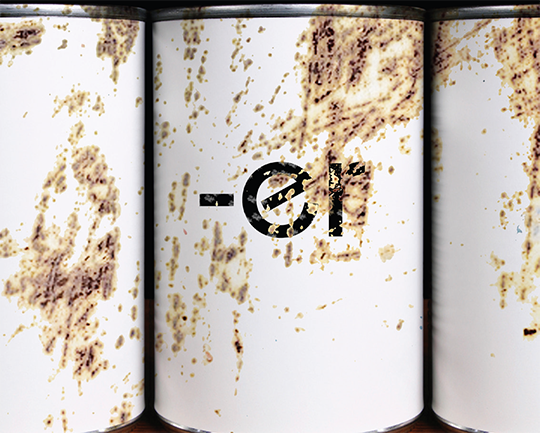
By Christopher A. Durham: President & Chief Strategist , My Private Brand
Since their very inception, private labels have settled for being second best, always selling themselves as something less. Always cheaper, frequently “the same as if not better” and all to often, uglier. Continue Reading
Posted on 18 July 2014
 By Koen de Jong, Managing Partner, International Private Label Consult (IPLC)
By Koen de Jong, Managing Partner, International Private Label Consult (IPLC)
In a number of European countries hard discount market shares are growing. This retail format successfully competes on price, quality, consistency and simplicity. In the meantime market shares range from 8 percent (United Kingdom) to an astonishing 43 percent (Germany). In response, many mainstream retailers have expanded or re-launched their budget private label lines to mitigate the risk of losing shoppers to discounters like Lidl, Aldi, DIA, Penny and Netto. Continue Reading
Posted on 18 July 2014
 By / Richard Kohn
By / Richard Kohn
For many working in Retail Brands, PLMA is a highpoint of the year. Where else, in a single day (or two) can you meet so many people in your network, find inspiration and see the newest innovations and product developments? Continue Reading
Posted on 18 July 2014

By / Perry Seelert
Questions You Should Answer Before Any Endorsement
Associating your brand and company with a celebrity used to be the domain only of the big FMCG who could afford to do it, but no longer. The biggest brands in the world pursue celebrity endorsement as a key part of their communication strategy. For example, Pepsi, who has the lineage of using celebrities like Michael Jackson, Cindy Crawford, Madonna and Nicki Minaj. Nike also has sports stars/celebrities closely linked to their DNA, people who have truly transcended sport like Michael Jordan, Kobe Bryant and Tiger Woods. Celebrity is deeply rooted in these brands’ strategy, and it has become an integral vehicle for how we perceive Pepsi and Nike as consumers. Continue Reading
Posted on 18 July 2014

By David Lopes, President & General Manager , International Private Brand Development for Daymon Worldwide
When a typical consumer thinks of a private brand, what comes to mind? Many of us may immediately think of the store-owned products sold at our favorite local supermarket. Yet there are some amazing international private brands brought to life through cutting edge companies that are not only leading their respective markets but also dominating. Continue Reading
Posted on 16 May 2014
 By / Koen de Jong, Managing Direct or at Internati onal Private La bel Consult (IPLC)
By / Koen de Jong, Managing Direct or at Internati onal Private La bel Consult (IPLC)
I once met with a manufacturer who shared with me how pleased he was to have successfully renegotiated his contract of supply at a major retailer. The product in question was private label pasta sauce. Unfortunately, to respond to the price target as set by his client he had slightly modified the recipe of the product to make it cheaper. As this was done in all openness and in collaboration with the retailer there were no hidden agendas.
I was reminded of this encounter as I recently visited a private label trade show where I met with a Sales Manager of an Italian pasta sauce manufacturer. The man was full of passion about his products produced in Calabria, the south of Italy. He proudly elaborated on how the geographic location and the close connection between the production plant and local farmers give to this family run business the opportunity to carefully select sun ripened vegetables, harvested at the peak of flavor. Using the most natural and fresh ingredients are the first step towards tasty recipes rich in flavor and nutritional properties he explained.
Raw materials processed in small batches result in products according to Italian tradition, without using preservatives and colorings. It will not surprise you that most of his products ended up in the market as premium private label products all over the world at prices superior to the local national brand in most of the cases.
Being a food lover myself (in fact I would never buy pasta sauce, I rather make it myself), I really enjoyed talking with this man, fueled by passion about his products. I shared with him the anecdote as described above and asked how he would respond if this would be the only option to keep a private label contract. His answer will not surprise you: he would never do such a thing.
As he sensed my fascination he went on by explaining that he was always very open about this topic with his retail clients up front. If vegetables of the required quality would not be available, his company just would not produce. As a result there could be limited availability to supply. However, we went on, his clients understood and accepted. One retailer in the United Kingdom even educates its shoppers almost proudly with small panels on-shelf stating ’unfortunately we are temporarily out of stock as our supplier has limited availability of quality ingredients’.
Those readers who read my columns on a regular base will understand why I believe this is the way forward for private label.




 By / Richard Kohn
By / Richard Kohn By Jean-Pierre Lacroix, President, Shikatani Lacroix
By Jean-Pierre Lacroix, President, Shikatani Lacroix
 By Koen de Jong, Managing Partner, International Private Label Consult (IPLC)
By Koen de Jong, Managing Partner, International Private Label Consult (IPLC)

 By / Koen de Jong, Managing Direct or at Internati onal Private La bel Consult (IPLC)
By / Koen de Jong, Managing Direct or at Internati onal Private La bel Consult (IPLC)